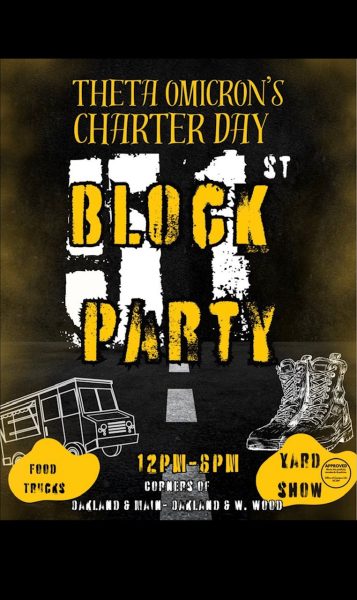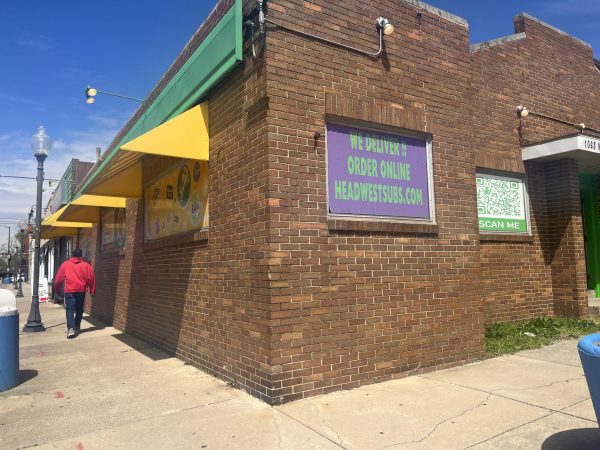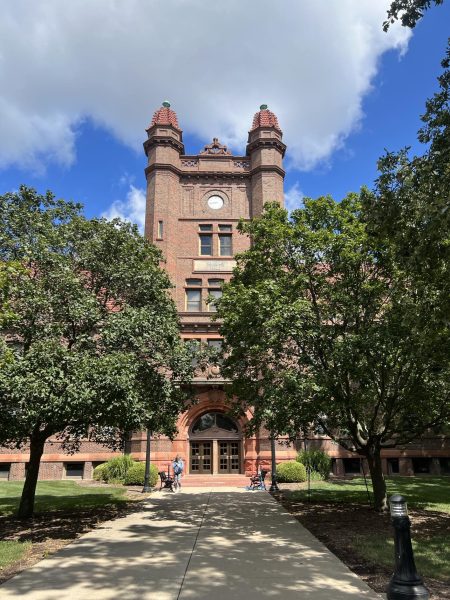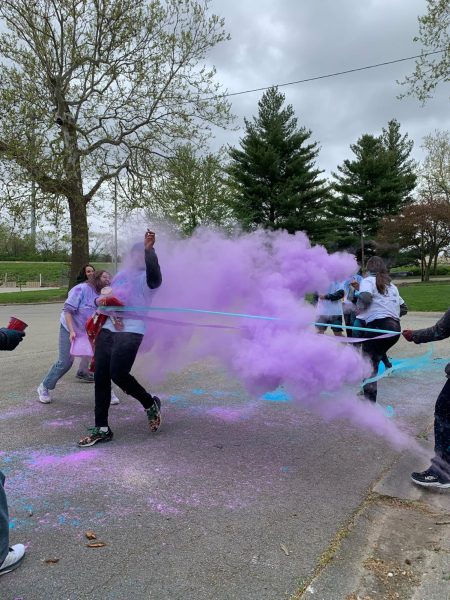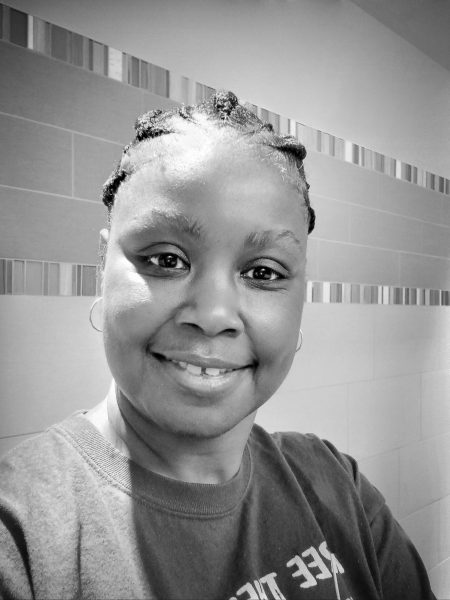Homelessness in Decatur
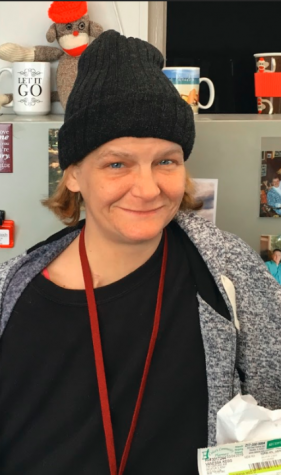
Vanessa Kegg fled her abusive life seven months ago. Before moving to Decatur, Illinois, to live with her brother, she left her immediate family and her two children behind in Alabama twelve years ago when she escaped her abusive marriage. She currently lives in The Careage House and has been homeless since she fled.
Kegg chose to be homeless rather than to live with the daily abuse. She is one of the 41 persons who are living in transitional housing in Decatur. From the Continuum of Care’s Point-in-Time count, those 41 persons are a part of the 169 people who currently identify as homeless in the community. This is a 23% increase from 2017.
The homeless community numbers in Decatur fluctuated throughout the past eight years. In 2012, there were 210 homeless individuals. 2014 had 255 homeless individuals and 2016 had 157. The numbers are always changing and never steady. This is because the strives to make the homeless numbers decrease have become more prominent in the last few years.
Decatur opened more shelters in 2018 to help bring more awareness to the homeless community.
Mary Garrison, Human Services professor at Millikin University, has seen firsthand how the homeless community has been affected throughout the last nine years. She created Box City, Millikin University’s night-long exercise to have students experience being homeless for 12 hours. The nights are cold, and the nights are long.
“It can be exhausting. People will say it’s no big deal they can do this, but you get tired and you’re always cold,” Garrison said. “This night has been life-altering for people.”
The school exercise can only bring a small understanding to the participating students. Students may get a sense of what it means to be homeless, but they don’t know what it’s really like to be homeless and living out on the streets.
From Oasis Day Center, a woman moves from abandoned building to abandoned building to sleep each night. She moves to different places every day and feels unsafe being on the streets. The abandoned garages and buildings do not provide the comfort that she hasn’t felt since she became homeless from her abusive marriage seven years ago. After her mother died in 2012, she gave up custody of her three children and escaped from her husband.
She never thought that she would become homeless.
“No one ever thinks they will become homeless until it actually happens to you,” a homeless woman said. “I live here and there. I don’t ever feel safe being on the streets by myself, but as long as I’m with my boyfriend I feel safer.”
She has been homeless since 2012 and has anxiety. She will harm herself if she feels anxious from other homeless people on the streets or outsiders who are not a part of the homeless community.
She also doesn’t think that Decatur takes care of its homeless community.
“They act like they don’t care,” she said. “There are so many abandoned buildings around that you can fix them up so more homeless people can live in them. If I ever won the lottery I would fix all of them up.”
The woman doesn’t want to keep being homeless. She wants to get on Supplemental Security Income (SSI) to get some financial stability and benefits that will help create a better life for herself.
“I wanna get a job and work,” she said. I would like to get a house and get my son back and see my daughters because I haven’t seen them in nine years.”
From the Continuum of Care Point-in-Time count, there are 11 people who identify as unsheltered homeless. Out of the 169 total, 25 identify as chronically homeless.
Charlie Theus used to be one of those chronically homeless until this year when Dove-Homeward Bound found a home for him. He is an example of what Decatur does to try and decrease the homeless numbers.
Theus lives in a four-bedroom apartment and is on SSI benefits. He used to live underneath the bridge of the Staley viaduct for 13 months. Eating out of cans he could find, he constantly dealt with bugs, roaches, and the weather conditions.
“It’s not good to be homeless,” Theus said. “You don’t ever want to be homeless out there cause it’s rough. You fear for your safety every night.”
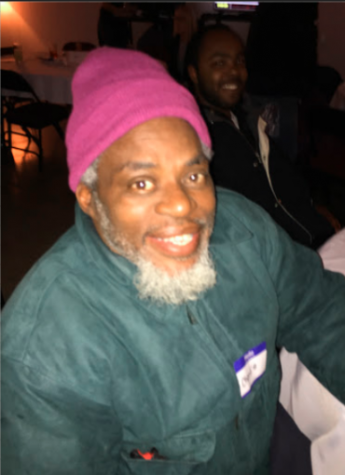
Theus is an African American who has a criminal record of Battery. This charge made his situation more difficult to get benefits and housing. While he has not ever experienced any discrimination from being black or homeless in Decatur, he does not think they’re treated fairly.
Out of the 169 homeless people, 51% are white, 42% are black, and 7% are other. In 2018, 39% were white and 55% were black. The percentage of homeless blacks has decreased in a year, but while that has gone down, the percentages of children and adults (19-35) have not decreased.
There are 25 children (age 0-8) and 51 adults (19-35) who identify as homeless.
Claire Hettinger, former writer for the Herald & Review, doesn’t think the homeless children get reported enough.
“Decatur does a pretty good job for men with the Salvation Army, but women and children fall through the cracks,” Hettinger said.
The Grace House and The Careage House are two shelters that have recently opened up that take women and their children in.
“I think Decatur is doing more, like the private groups, they’ve opened two new women’s shelters in the past year,” she said. “So those are definitely a step in the right direction, especially because the number of women being homeless is increasing.”
For women’s shelters, there is also Dove-Homeward Bound who takes in women and their families, especially if they come from a domestic abuse background.
But while there are some new shelters that opened, people have mixed emotions about the efforts to help the homeless community.
“People do a lot of big talking, but not always following through. Some people care, but some people don’t. It’s a mixed bag,” Hettinger said. “The businesses downtown will ask the homeless to move to a different location away from outside their businesses, so they don’t ‘ruin the look of downtown.’”
The people who are in serious need of help are asked to leave the downtown area. They’re forced to move to other locations in Decatur.
Theresa Churchill, a retired writer from the Herald & Review, said Decatur’s efforts towards the community have had successes and failures.
“A lot of things are being done with the shelters and the resources within those shelters, but there’s always room for improvement,” Churchill said. “You can always try to improve how you’re reaching out to help them.”
There’s been more of an effort to help people who define as chronically homeless with the help of Mary Garrison’s social work, but hardcore homelessness hasn’t decreased. It’s something that everybody has tried but not been successful with.
“The homeless are always gonna be with us,” she said. “The programs that existed to help were doing what they could, but there’s usually a limit to what you can devote. There’s other problems that society has to think about too.”
The homeless individuals have a difficult time following through with the efforts the Decatur community provides. They can have trouble fitting within the programs and will wind back on the streets or in a different shelter.
From the Continuum of Care, when the homeless individuals do get housed, they still do not feel like a part of Decatur. They feel isolated because they have lived in shelters or on the streets for so long and with multiple people always around. It’s hard for them to adjust to a different environment going from a shelter to a one-bedroom home.
Along with isolation, 40 homeless individuals reported having an emotional or mental disability. 26 dealt with substance abuse and 22 had physical disabilities.
Kegg is still a part of these statistics. Dealing with substance abuse, she also spends a lot of time in the hospital getting surgeries because she’s been on Dialysis for the last three years. Going through her medical emergencies by herself makes her feel extremely lonely being homeless.
“I haven’t seen my children in 12 years. I could go and see them, but I don’t want them to see me like this,” Kegg said.
She’s scared to live on her own because she doesn’t want to go back to her abusive ways. Kegg would rather live in a shelter with other individuals than to be by herself.
“When you’re homeless and you don’t have a family or anyone to help you, it’s very lonely,” she said.
Kegg plans to work towards getting her social security back. She has a hard time following through with plans but wants to be better. She wants to make a better life for herself and see her family again.
Charlie Theus wants to get a job and work to pay his bills. If he could, he would love to become president one day, so he can make the country better and have everyone treated the same.
The shelters and housing efforts by Decatur are a good start, according to Fred Spannaus from Spannaus Consulting, but there needs to be more recognition to the notion that shelters are not permanent housing for the homeless.
“We, as a community, need to get creative and think outside the regulations in terms of what kind of housing is provided,” Spannaus said.
Shelters are only bridges to the way of permanent housing for the individuals. Decatur needs to address more on how more people can get permanent housing instead of creating more shelters.
“Shelters are not a solution to homelessness. A solution to homelessness is homes.”

